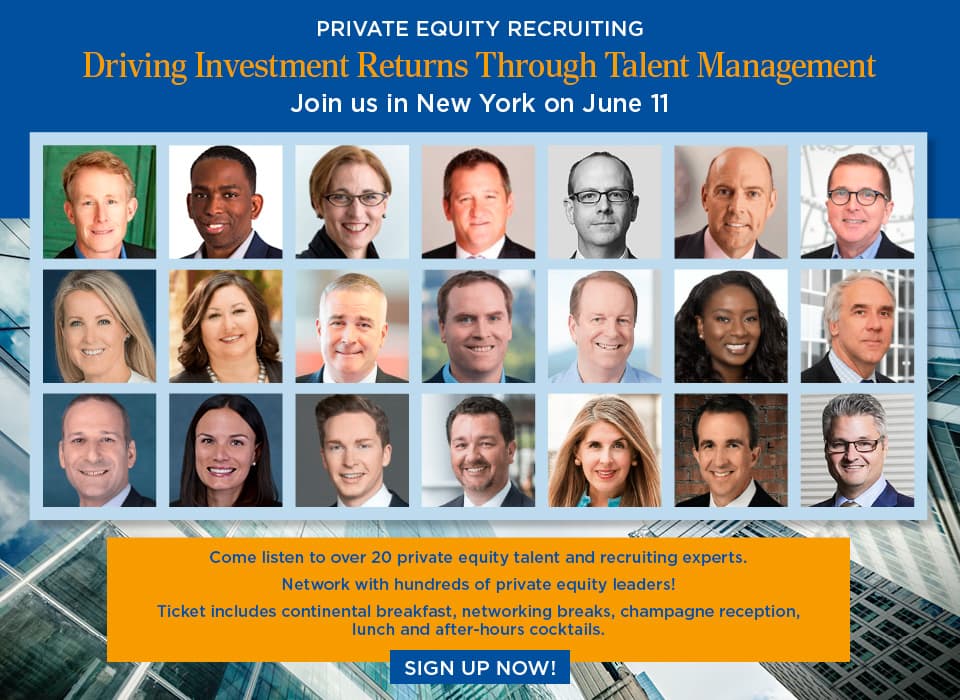The State of Executive Recruiting in 2020

February 3, 2020 – Cautious optimism seems to be the consensus among business leaders and executive recruiters heading into 2020. Although some pundits are predicting a dramatic and near-term market correction, supporting data is decidedly mixed. Changes in expectations for 2020 include: U.S. economic growth is expected to range from 1.5 percent to 2.0 percent, likely down from the 1.9 percent growth forecast last April, and the 1.8 percent growth forecast in June.
“What we do know from history is that there will be a material change in the economy in the next handful of years, but forecasting its timing is beyond the reach of every expert,” says a new report by McDermott & Bull’s president Brandon Biegenzahn. “As such, we believe our clients should prepare now so as not to be caught off guard,” he said.
In the report, Mr. Biegenzahn took a look back on the hiring trends from 2019 which his firm think will carry forward into 2020 (many of which are nearly identical to last year’s prognostications), and highlights areas of recession preparation.
“In 2019, we serviced 27 distinct financial institutions,” said Mr. Biegenzahn. “Our search engagements were balanced, with no single functional vertical representing more than 14 percent of all engagements. We did notice an uptick in clients driving change through investing in the human capital function – executive management (CHRO), performance management, talent acquisition, and compensation and benefits,” he said. “Another area of increased activity was board buildout. On a firm-wide basis, we built out more boards than in any year in our firm’s history.”
Tight Labor Market
According to multiple reports, executive hiring is experiencing a high demand for talent contrasted with a low supply of suitable candidates. This issue impacts nearly all industries, but none more so than community-centric banking. This trend is not specific to any one functional vertical but impacts the entire spectrum of executive leadership.
“Given the well documented mass exodus of Baby Boomers from the workforce, and the lack of talent development within the big banks, up and coming talent with the willingness to commit at least five years to their next role are fewer and farther between,” Mr. Biegenzahn said. “As the talent pool shrinks, our clients are having to conduct nationwide searches for candidates that used to be abundant in their own backyard. Taking on the intricacies of a national search and a relocation have become commonplace for us and our clients, with 47 percent of our searches in 2019 necessitating candidate relocation into the market.”
Demand for Diversity and Inclusion
Diversity and inclusion have been buzzwords within corporate circles for years. No longer are these simply catch phrases, but instead are now business imperatives. “Put simply, a diverse workforce drives innovation through the natural dynamic friction caused by people looking at the same issue through different lenses,” said Mr. Biegenzahn. “Diversity and inclusion are always one of the top three objectives of our clients when conducting an executive search. In 2019, 59 percent of our candidates placed were representative of a diverse workforce.”
 Brandon Biegenzahn leads day-to-day operations for McDermott & Bull as well as the strategic buildout of the firm’s team of executive search managing directors. He serves as chair of the firm’s financial services practice group where he is a partner to an array of financial services firms, including investment banks, commercial banks, private banks, credit unions, asset managers, institutional investors, and fintech companies.
Brandon Biegenzahn leads day-to-day operations for McDermott & Bull as well as the strategic buildout of the firm’s team of executive search managing directors. He serves as chair of the firm’s financial services practice group where he is a partner to an array of financial services firms, including investment banks, commercial banks, private banks, credit unions, asset managers, institutional investors, and fintech companies.
“What we’re seeing, more than ever, is that candidates are demanding to work for a company that not only speaks of its commitment to diversity and inclusion but demonstrates it in its hiring,” he said. “Put another way, candidates are looking for institutions that have a diverse employee population and are progressive about bringing diversity of thought into the boardroom.”
Board Buildout
Community financial institutions have been focused on building out their boards with members who bring functional experience the enterprise can benefit from – marketing, human resources, technology, etc. “In some instances, seeking expertise outside the industry,” said Mr. Biegenzahn. “This means that many board candidates are gainfully employed in their field of expertise. As such, they don’t have the flexibility with their calendars to attend the numerous board and committee meetings. Therefore, we counsel our clients to be more willing to have board members engage electronically. This will give your institution a greater likelihood of recruiting strong board members.”
“Not only is building out your board a way to drive a direct impact on franchise value, but the candidate marketplace is clamoring for board opportunities,” Mr. Biegenzahn said. “Nearly every executive I speak to has a desire to someday sit on a board. Often a prerequisite is prior board experience. This means that you can have access to first-time board members with professional pedigree you may think is out of reach. It isn’t.”
Investing in Human Capital
“As noted earlier, we saw an uptick in our clients investing in strong HR leadership,” Mr. Biegenzahn said. “The change in thinking says, strategic HR bucks the notion that HR merely takes care of those who take care of the business. Rather, strategic HR must be a driver of the business. HR no longer merely serves employees, instead it develops, empowers, and cultivates people.”
Mr. Biegenzahn noted that strategic HR must be in a position to construct organizational designs which clearly align with business strategies. “These designs must enable informed decision-making models, allowing for inter- and cross-departmental integration, which in turn results in increased corporate vivacity and employee retention,” he said. “Strategic HR drives culture, optimizes operational performance, and develops leadership.”
Related: The Upskilling Deadlock to Continue in 2020
“What is interesting is that not only were our clients investing in their top HR leader, but in sub-specialty experts in the areas of performance management; training and development; talent acquisition; and compensation and benefits,” Mr. Biegenzahn said.
Recession Preparation
Be Candid with your People – It’s important to be open and forthright with employees. “Conversations about a potential downturn and what will be done to manage through the period should be had throughout the company,” said Mr. Biegenzahn. “You should be forthright but not overly specific—i.e., avoid talk like ‘marketing will be the first to go.’ The gravity should not be understated, but it can be easy to create unnecessary panic.”
 Recession, Talent Shortages Top Concerns Among CEOs for 2020
Recession, Talent Shortages Top Concerns Among CEOs for 2020
A new survey by reveals that the world’s chief executives view the risk of a recession as their biggest external concern in 2020. Attracting and retaining talent ranks as their top internal concern. They also feel unsettled by trade uncertainty, political instability and more intense competition from disruptive technologies. They plan to counter such forces, however, by developing more innovative cultures and setting up new business models.
Growth-stage companies are full of smart, ambitious people with deeply rooted expansion mindsets. “Contraction is against their nature, so dialing back can be difficult,” said Mr. Biegenzahn. “But sharing your contingency plan will provide a sense of focus and integration into the process.”
Factor on Customer Experience – Debt collection is particularly vital in a recessionary period–mitigating charge-offs directly impacts the bottom line. “Particular areas of focus to be applied by every financial institution as it looks to insulate collection strategies against recession are summarized below,” Mr. Biegenzahn said.
Experian recently conducted a study of the impact of traditional credit card collection methods and found that three percent of 30-day delinquencies in credit card portfolios closed their accounts after paying their balance in full. And, 75 percent of those closures came shortly after the account became current. It merits notation that the propensity to close accounts was four times higher in young, urban, affluent customers than in any other demographic. Although these numbers may not seem large, personalizing the process will not only maximize results; it will likely lead to customer retention. This is no less true of entities as it is of individuals.
Related: Top Executive Jobs for 2020
Leverage Technology – Historically, financial institutions have responded to higher delinquency rates by expanding collection staffing. “However, new hires often have limited experience,” said Mr. Biegenzahn. “Inexperience generally leads to a far less nuanced client relationship. The explosive increase in smartphone use over the last decade suggests how technology has changed the process and customer expectations. You should leverage the same technological advancements to better understand customer preferences, and to automate the collection process.”
Mr. Biegenzahn said that the underlying foundation for any recession-readiness program centers on how the one prevents and handles bad debt. It is axiomatic that each dollar of loss prevented equates to a dollar of profit. “At the most basic level, you must monitor your portfolios and minimize the flow of accounts into collections,” he said. “You should closely observe changes in risk metrics across key segments that may point to rises in delinquency—and take preemptive action where possible.”
 Executive Search Firms Expect Revenue Uptick, Continued Growth in 2020
Executive Search Firms Expect Revenue Uptick, Continued Growth in 2020
A new year brings a new set of perspectives and priorities. In 2020, search consultants are excited about the possibilities provided by technology, anxious about the economy, and (still) struggling with the talent shortage.
Expectations for 2020 are largely positive but are more modest than in years past, according to Bullhorn’s “Global Recruitment Insights and Data” report. This is likely connected to economic uncertainty with 45 percent expecting a recession in 2020, compared to just 30 percent heading into last year, said the study. Overall, 64 percent of respondents named economic uncertainty as their top macroeconomic challenge for the coming year, up from 49 percent last year.
“You can use advanced data and technology—such as non-traditional data and machine learning—to stress test portfolios under varying scenarios, including economic downturn,” said Mr. Biegenzahn. “The insights can illuminate how certain accounts within lender portfolios will likely perform and lead to specific action plans to engage those accounts: pre-delinquency, during the collections process and after charge-off.”
The Intersection of Analytics and Relationships – Collection strategies demand diverse approaches, which is where analytics-based strategy comes into play. “As each customer and situation differs, machine learning techniques and constraint-based optimization can open doors for you,” Mr. Biegenzahn said. “You can rethink collections outreach beyond static classifications (such as the stage of account delinquency) and instead prioritize accounts most likely to respond to each collections treatment; this creates an improved collections experience.”
Mr. Biegenzahn said that customer engagement is likely the most critical aspect of any recession-readiness program—especially given historical perceptions of the collections process. “As discovered through Experian’s analytics, many account closures occur after the account is brought current,” he said. “Applying traditional methods, you may collect an outstanding balance, but miss out on long-term customer loyalty and future revenue opportunities. This, again, is true of individuals and entities.”
Related: Skills Shortages Causing Recruiting Difficulties
Contributed by Scott A. Scanlon, Editor-in-Chief; Dale M. Zupsansky, Managing Editor; and Stephen Sawicki, Managing Editor – Hunt Scanlon Media












